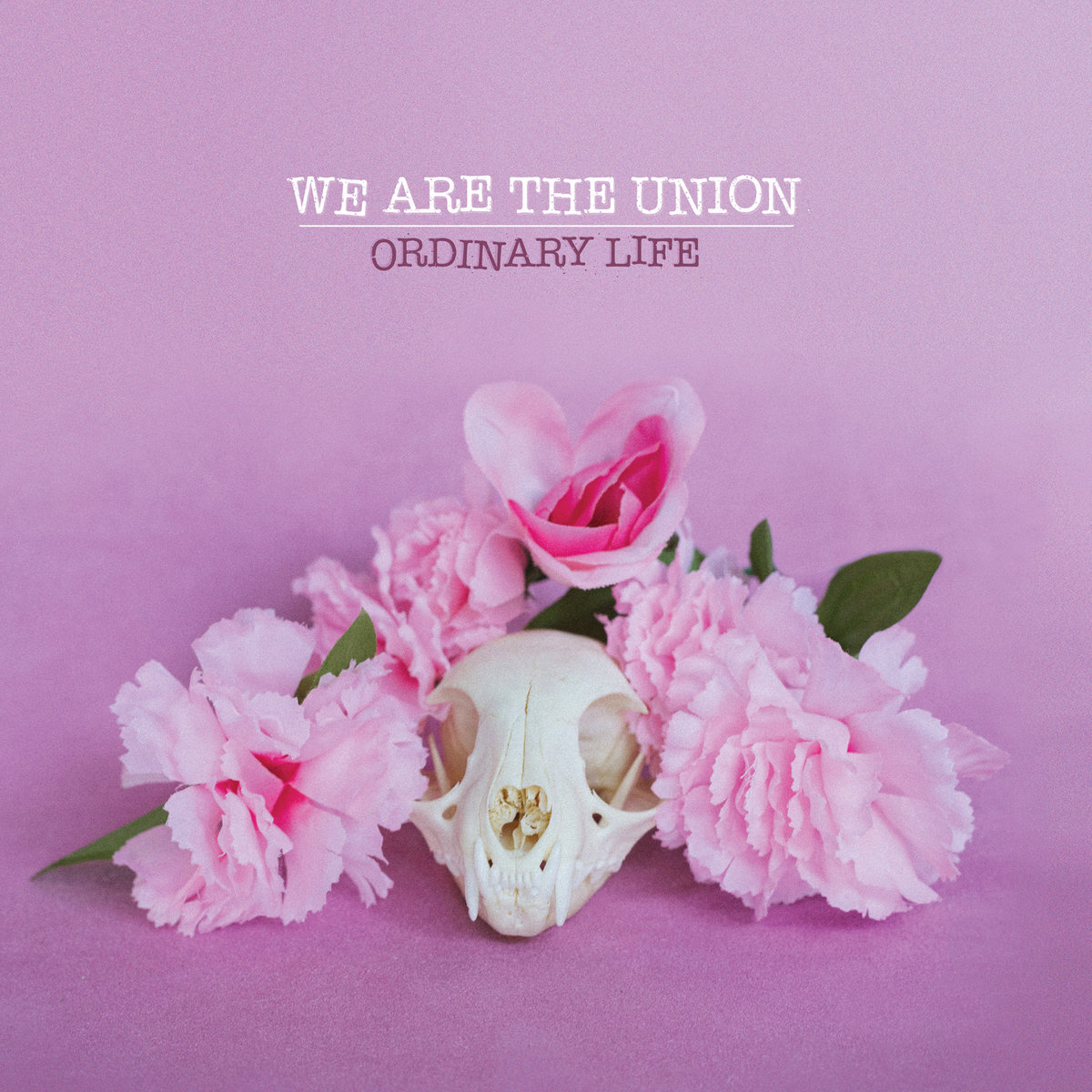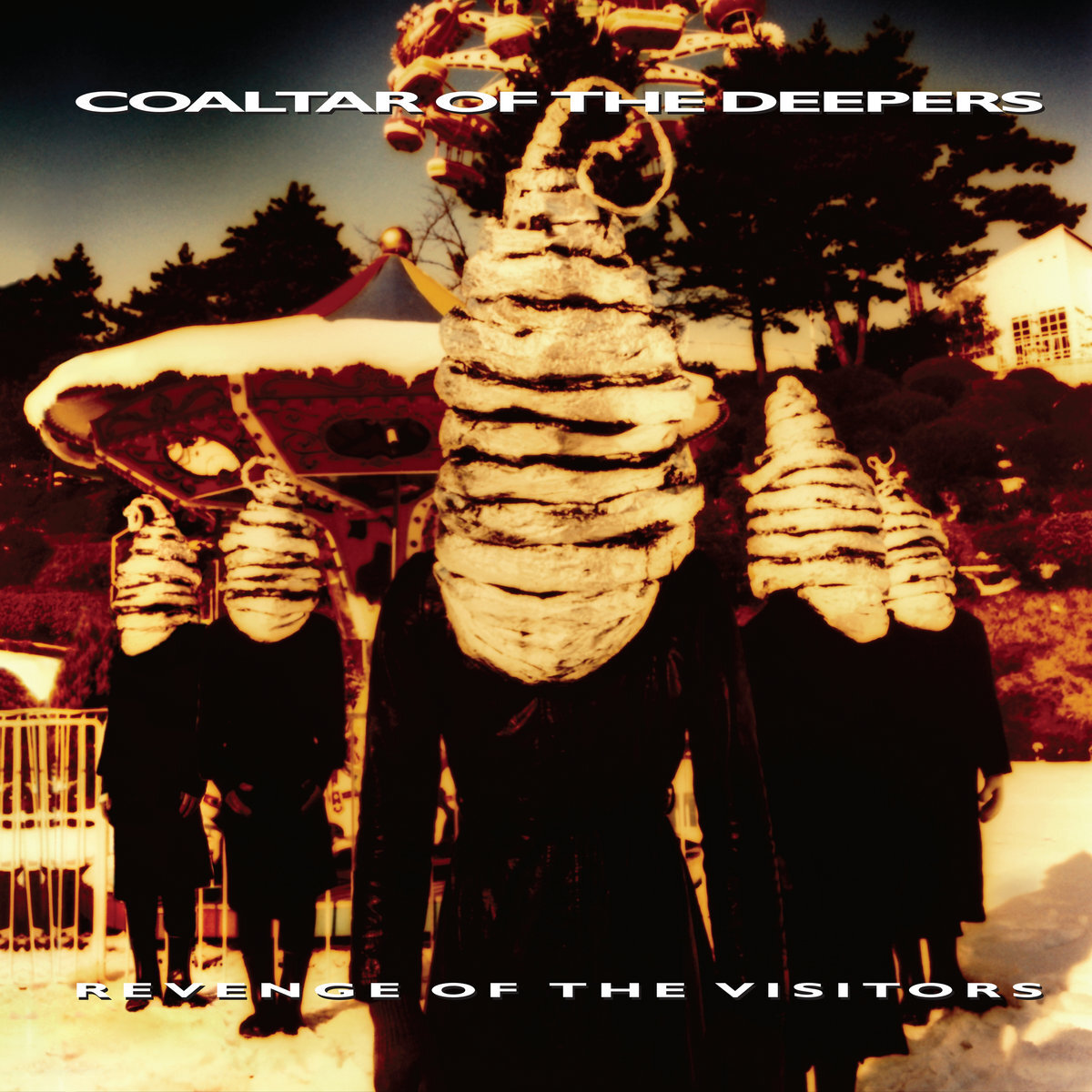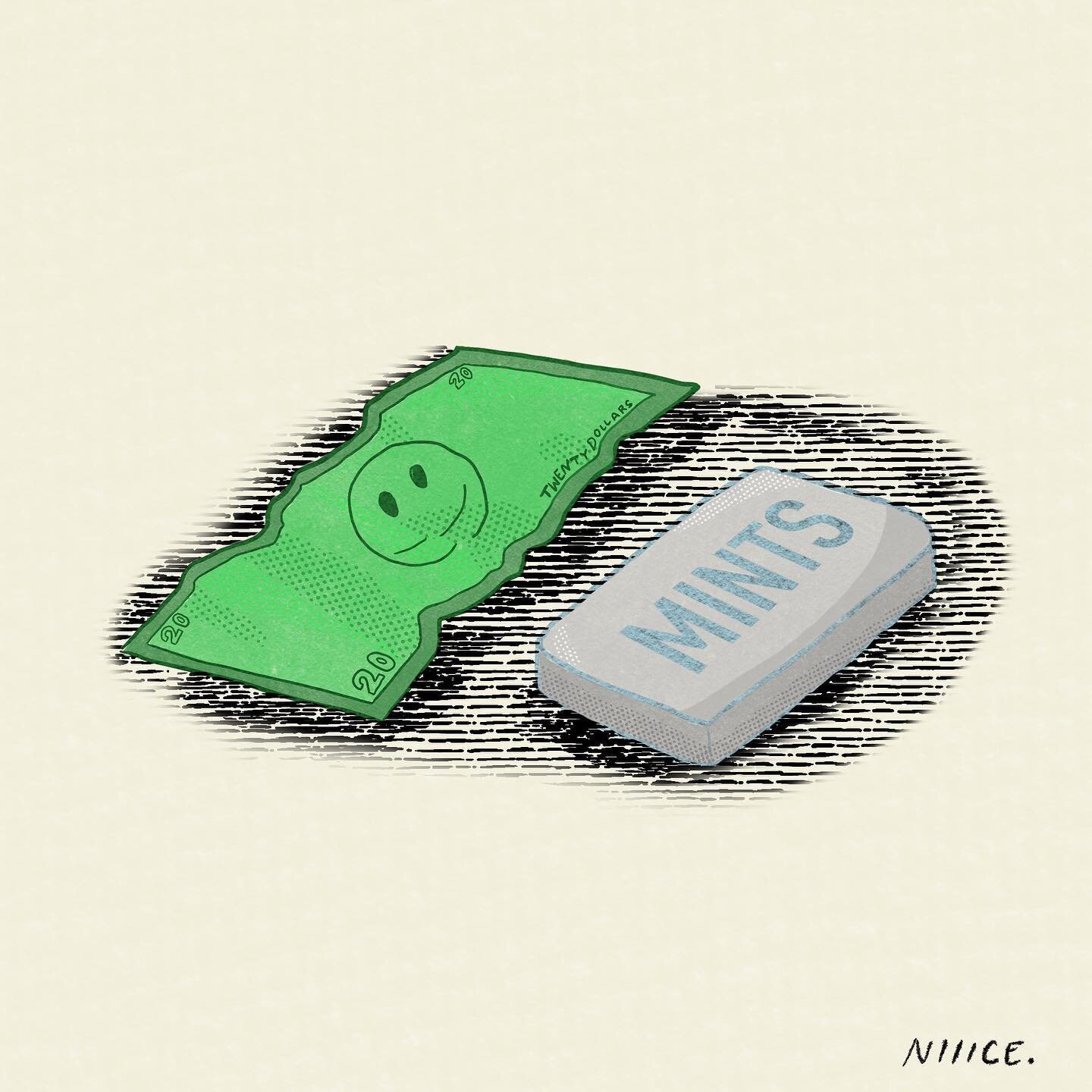The Treacherous Experience on the Outskirts of Ordinary Life
/What is the everyday mundane? How does mundanity differ from person to person, and how do we cope with something that seems so simple? We’ve survived well beyond a year of the same monotonous process every single god-forsaken day. The difference is that this mundane has been coupled with a deadly everlasting pandemic for the past year and a half. Stuck in what feels like an eternity, the weight of being a cog in the capitalistic machine has never felt so close. We’re all chronically burnt out, questioning what we know, and breaking new ground despite everything weighed against our existence. For trans folks especially, this year has been one blow to healthcare and human rights after another. It is exhausting, but we have to push through all the heartbreak, the loneliness, the gender dysphoria, and the identity growth if we want to find a happy resting state. Through the chaos of our reality, self-reflection and acceptance nevertheless persevere. We must learn the hard way that running from ourselves only makes things worse.
Trans people push through the mundane while consistently juggling the social encounters and internal processes that come with the experience of transitioning. It is conflicting thoughts and feelings that haze over the mind on a consistent basis. What do we do on days where this is especially prevalent, and all we can feel is how much we don’t fit the everyday process? How do we escape, and what are we escaping from? Coming out as a transgender woman, Reade Wolcott captures every emotion in her experience transitioning with an album jammed-packed with trans ska banger after banger. Showcasing the crushing weight of a cookie-cutter existence, We Are The Union finds happiness in coloring outside the gender binary lines and creating a reality that is far from ordinary. If you need that iced coffee and estrogen straight to the veins, then We Are The Union is here to provide all that, and a whole lot of serotonin with Ordinary Life.
This album sends you full swing into a ska-filled summer with opening track, “Pasadena.” Right off the bat, the listener is hit with catchy lyrics of a failed relationship portrayed in a manner that everybody can relate to. With a mental state cracking and causing division and conflict at every turn, Wolcott sums up the feelings of being mentally ill in a long-term relationship.
and it’s a shame
your secret smokes in the alleyway
to numb the pain
to escape the everyday mundane
What’s so fun about Ordinary Life is how successfully Wolcott writes about the transgender experience in ways that everyone can relate with. Through catchy ska-punk tunes, this album conveys how similar the existential dread feels from person to person. Despite the upbeat instrumental, this opening track foreshadows the depth Wolcott reaches in showcasing what makes that experience unique for her as a trans woman.
Wolcott’s ability to sing about the transgender experience through relatable anecdotes makes for a conceptual album that is handcrafted and delivered for queer fans while easily digestible for the cis fans. It is a widely accessible album that never falls short in poignant prose but doesn’t hide the transgender experience behind any curtains or veiled analogies. Each song is far from anything in the realm of the ordinary. Instead, they champion transparency and complete honesty to create an album that fully grasps the transgender experience for everyone to hear. Ordinary Life demands your attention and holds it for 35 minutes straight.
With the lead single, “Morbid Obsessions,” we are met with the album’s thesis. As showcased in the music video, this album is all about burying your old self, laying the relationships that don’t serve you to rest, and becoming brand new. The concept of transgender feelings as morbid obsessions is cunning, especially with the analogy of zombies used in the video. It brilliantly illustrates how an overwhelming majority of the public views transitioning as some fucked up fixation. The quite literal zombie-like feelings come from the alienation felt by trans people in a capitalistic society that wants to shut you out completely. The metaphor of the plague doctor as a bouncer symbolizes sexual control and police brutality towards LGBTQ people enacted by the state. It also shows the religious right-wing’s desire to eradicate the trans community entirely. This video depicts the intolerance that queer people face whether they’re coming out, actively transitioning, or expressing their gender.
When you’re trying to stuff gender-related feelings deep down inside, interacting with others is met with fear of accidentally confessing and outing yourself. The cleverness of this band is exhibited in the “No Zombies Allowed” sign at the bar where the video takes place. Feeling like a sore thumb, Wolcott turns to leave but is stopped by Jeremy “Jer” Hunter, best known for their slapping covers over on Skatune Network and carrying the We Are The Union brass section. Through storytelling, “Morbid Obsessions” gives us a glimpse into discovering and redefining your gender around the people you love.
Jer’s role in this video is riddled with underlying experiences of living as a nonbinary person. As Wolcott made an entrance with every zombie trait on display, Jer’s features are more subtle and easily covered by a hood. The experience of living in the in-between is best captured with this role and conveys the similarities in gender non-conforming and trans identities. Although not privileged with the same abilities to pass, Wolcott forges camaraderie with Jer and fellow zombie Gracie Pryor. Together, they break the bar rules and defeat the plague doctor once and for all.
now in come the drugs
in come the drugs and the booze
razors, wrists, and self-abuse
trapped like a rat, got nothing left to lose
she wanted a dress
like all the other girls
a head full of curls
they said “son, you can’t always get what you want in this world”
Whereas bands like Home is Where weave feelings through intricate metaphors embroidered in extrospective observations, We Are The Union capture the trans experience from the inside out. It feels like the band is processing each new emotion as they unfold.
This means every track possesses an introspectiveness sprinkled with a healthy amount of one-liners and humor. While Self Care sought to normalize mental health, Wolcott now takes on the task of normalizing the trans experience as a whole with Ordinary Life. The result is a record full of pop-punk melodies coupled with excellent 2-tone rhythms. It is honest, upfront, and genuine, with summer vibes bursting at every seam.
Best fitted for skanking your heart out in sweaty basements, Ordinary Life is a vibrant record that wears its heart on its checkered sleeve. The record’s sound is a far cry from the blacked-out, classic punk of Against Me!’s Transgender Dysphoria Blues, but is so rich with the trans experience and solidarity that it brought me right back to the first listen of that defining trans album. However, with each listen of Ordinary Life, it becomes clear that to compare We Are The Union to Against Me! would be an understatement. These are two bands for different moods and different parts of the process. Transgender Dysphoria Blues is the battle cry to transitioning with room to spare for letting out composed rage, while Ordinary Life is all about the messy in-betweens, fucking up, and dancing on the grave of your enemies and past self.
We’ve arrived at a new era of trans-lead music that blends genres while showcasing brilliance in so many different types of writing and creative endeavors. 100 gecs took the past two years by storm, and Left at London released a fantastic new album on the same day as We Are The Union, to just name a few. The art that these bands craft follow varying lyrical, instrumental, and electronic techniques that are consistently inspired by the ever-changing world around them. Bands featuring trans musicians are captivating the world, with brilliant music that sticks in your head for months but also provides an umbrella for fans who identify as trans or nonbinary and have never had such an array of relatable music before.
Being trans is never black and white, and every song off of Ordinary Life is a trans anthem that beautifully reflects that nonlinear journey. This path always circles back to the extraordinary. Still, the record is also mired in the mundane experience of transitioning within a society that wants to file you down and stuff you into made-up, categorical gender norms. As a nonbinary person, I cannot possibly understand the extent of transitioning. Still, I hope my ability to relate to the feelings of being controlled by the gender binary until you finally reject it speaks for itself. The overwhelming comfort I felt hearing these songs goes to show the universality in navigating the gender experience.
afraid to disappoint
so i fail everyone around me
Attempting to suppress conflicting gender thoughts is an all-consuming process. Short-circuiting occurs when these disconnected thoughts jump in the way every time you try to speak. As a result, you end up feeling jumbled, which leads us into the next track entitled “Broken Brain,” which reinforces the concept of absent-mindedness. Dulling the brain to get through the everyday is a consistent theme throughout this album. For example, the band drops lyrics about using vices to cope with mental health that contrast with survival tactics and medicine that help Wolcott achieve self-actualization. In what is perhaps the most iconic line of the record, “please inject me with iced coffee and estrogen / we’re panicking again,” self-medication and hormones are followed by the overwhelming sensation of failing to escape the ordinary.
lists inside of lists, a labyrinth
how do people do the things they plan to?
lost the day again laying in the grass
sweating every conversation i’ve ever had
What is ska if its brass section can’t transport you to another world? Jeremy Hunter delivers on this album with a killer trombone that carries as much emotion as the lyrics themselves. What perfectly pairs with a diagnosis of depression and dysphoria? A horn section that sinks deep into your soul. Flanked by Tenor Saxophone, Baritone Saxophone, and multiple other trumpets, the brass section led by Jer is accompanied by Kevin and David Miller, as well as contributions from Scott Klopfenstein. The dynamic and emotive instrumentation on this album is not to be missed for the way it keeps you on your feet and sticks like glue to your brain.
With Ordinary Life, we get eleven tracks of unbeatable trans anthems tied together with themes of breakups, heartache, depression, and ADHD. The best part? This album provides the full range of emotions in equal parts universal and unique to Wolcott. In a BrooklynVegan interview, Wolcott touches on the goal to bring normalization of every emotion in an easy-to-grasp way that extends far beyond transgender struggles. She notes, “what I really tried to do was to frame the trans experience and frame dysphoria alongside things that are maybe more relatable to the general public, like heartbreak, like ADHD, depression, all the more common themes that we've kind of touched on in the past." Through this, we have a record that is dynamic, widely relatable, and full of songs for every mood that specifically hone in on the trans experience.
Are you feeling beat down, bummed out? Shaken all the good vibes out with the last few tracks and need to switch it up? “Make It Easy” is the love song of every queer’s dream. We got the perfect and undeniably adorable music video, catchy guitar and basslines, an alluring trombone, and Brent Friedman’s incredible percussions that act as the backbone of the tune, with Jer carrying the motif throughout. The drums featured in “Make It Easy” pull you in, push you out, and throw you back on your feet without missing a beat. The builds of the snare and floor tom in this song are sharply highlighted to make it feel like being lifted off the ground. These drums pair brilliantly with the crescendo of the trombone to close out the front half of this record with hopeless romanticism.
When the needle hits the backside of the album, we are instantly met with a sensational syncopated nod to the roots of ska on “Boys Will Be Girls.” Complete with aesthetic references to Backstreet Boys, this tune breaks every single gender norm, gives a shout-out to nonbinary people, and smashes the deeply held fear of the trans community commonly upheld by the right-wing of the political spectrum. This single laughs in the face of fear. It laughs at the absurd notions held by small-minded people that being transgender is a plague or that the COVID-19 vaccine will turn kids gay or trans. Instead, “Boys Will Be Girls” is a triumphant and multi-colored celebration of the trans experience.
throw a tantrum, hold a sign
as the infantry arrives
we’ll take back the city tonight
the kids will be alright
your old ways will die
in the darkest depths we’ll stand here in the light.
The people who created and enforced the rigid gender binary are scared. As gender is the backbone of patriarchy, the threat of that crumbling invokes hatred towards trans and gender non-conforming folks. Old notions are left to retire as the common consciousness of gender shifts, with inclusivity and reason guiding the way. Forging new paths in identities that match the way we feel is the only way forward.
From there, Ordinary Life winds from substance abuse on “Wasted” to finding solace in accepting the imperfect parts of your reality on “Everything Alone.” As the record winds its way to a close, the band ends with a rebuttal of the ordinary. Finally, after dredging through all of these feelings, mundanity, and coping mechanisms, Wolcott leaves the listener with a poetic articulation of the trans experience.
change your clothes in the shadows
let nothing pass through lonely doorways
your sandcastle crumbles, but you’ve never been better
is it real if we don’t swim in the shame?
like a swing set in the sea
we are anything but ordinary
With these lines, We Are The Union charge forth in the undertow, looking for anything but the ascribed ordinary. Wolcott is triumphantly rejecting her ordinary, burying her past self, while using a garden as an analogy for sowing the seeds of a life that's anything but ordinary. As Wolcott so poetically sings, “the only difference between a garden and a graveyard / is what you bury in it.” With this, she finally lays her dying parts to rest, becoming brand new in the extraordinary.
Ashley Bedore is a disabled, queer music lover living in Denver, CO. They can usually be found with a record spinning, head buried in theory, and cats on either side. As a sociology major and community organizer, Ashley enjoys discussing accessibility and collective care in the scene to foster spaces where every single body belongs. Follow them on Twitter at @emomarxist.














